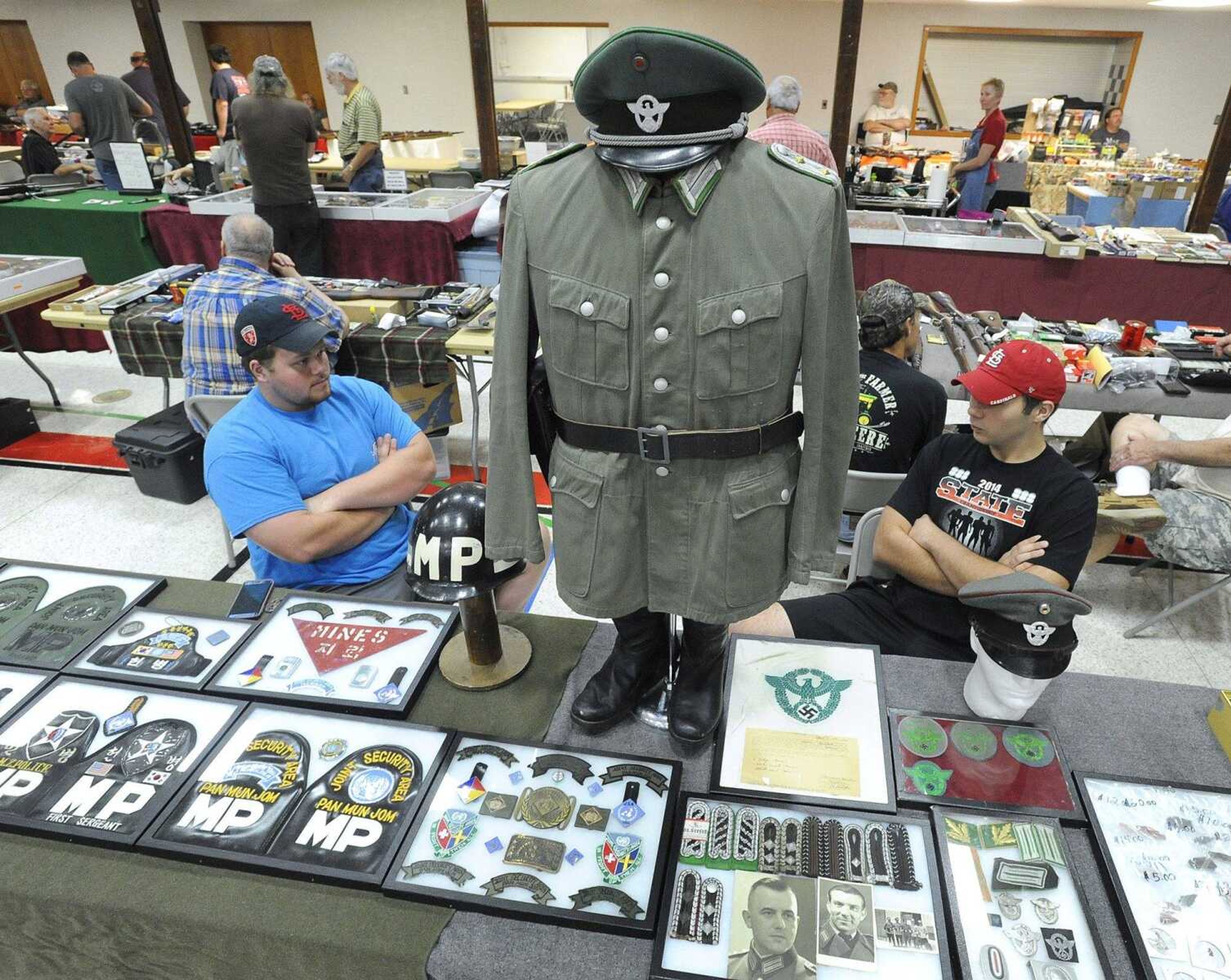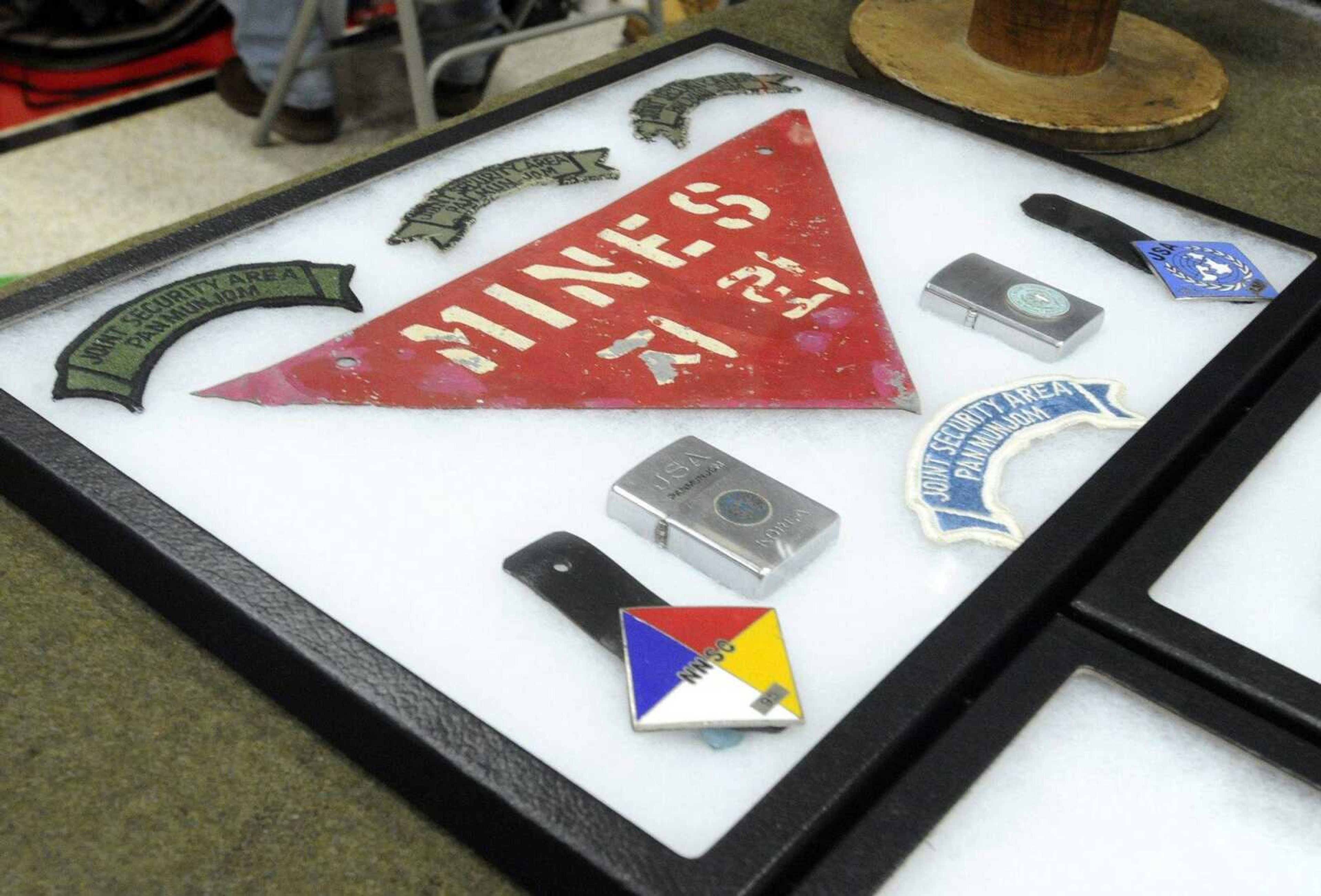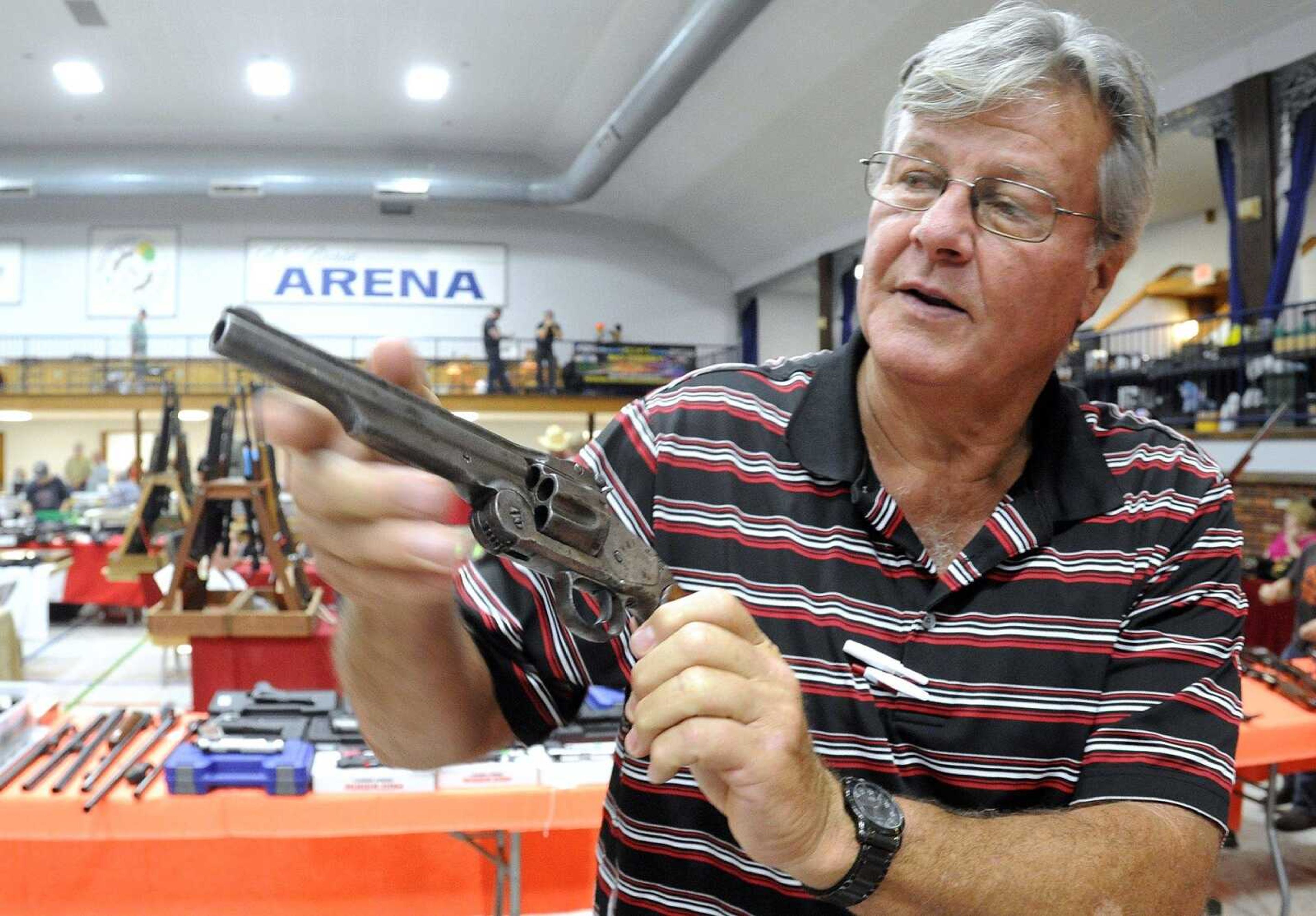Pieces of history: Cape Gun Show had a few collectors of firearms, war memorabilia
Dozens of the firearms on display at the Arena Building over the weekend during the Cape Girardeau Gun Show were dated to the 1800s -- providing a tactile connection to the past for collectors who maybe valued provenance over firepower. Guns like the six-shooter on display at Jerry Halley's display. Halley, of Doniphan, Missouri, said the Smith & Wesson American pistol was made between 1872 and 1874...
Dozens of the firearms on display at the Arena Building over the weekend during the Cape Girardeau Gun Show were dated to the 1800s — providing a tactile connection to the past for collectors who maybe valued provenance over firepower.
Guns like the six-shooter on display at Jerry Halley’s display. Halley, of Doniphan, Missouri, said the Smith & Wesson American pistol was made between 1872 and 1874.
“The Colt, of course, was more popular than this one,” he said of the .44 “Russian Caliber” gun, but he added it presumably would have been one of the guns that helped shape the American West during the late 1800s.
It was even capable of shooting, although doing so would be unwise, he said.
“You could make it work,” he said. “But the ammunition is just so ridiculously hard to come by, it wouldn’t be worth it.”

He was selling the pistol for $1,100, but some of the rifles he had on display were even older.
The collection included flintlock-style rifles, as well as trapdoor-style ones, although he said the historical significance they may bear is more difficult to track down.
To Mike LaGree of Fruitland, Missouri, there are two types of history a gun can have: the widely recognized kind and the more personal.
“Most of my stuff is military stuff,” he said. “Old stuff, but I’ve known most of the people here, too, for around 40 years.”
But the personal history he spoke of was tied to a rather unremarkable gun.

His affinity for firearms, he said, began when he was 5 years old and his father gave him his first .22 rifle.
“A lot like this one here, matter of fact,” he said, plucking a skinny gun from the stack of military-style rifles. “He had to cut the stock off it because my arms were too short for me to reach the trigger.”
And not all of the historically significant items on display were weapons.
Brothers Noah and Caleb Jones brought their collections of military uniform memorabilia.
Caleb’s table was full of patches and stripes and even a helmet from soldiers who served along the famed 38th Parallel in Korea, also known as the demilitarized zone.
“Some of this stuff dates back to the late ’50s,” he said. “All the way up to the present day.”
His most interesting piece, though was a simple triangular sign. It was plain red and scuffed with age. In white lettering, it simply read — in Korean and English — “MINES.”
“Yeah, a vet stole this,” Caleb said. “He probably shouldn’t have done that.”
Noah’s collection focused mainly on the German Schutzpolizei — or “city police” — from the era of Nazi rule. He said he got into collecting only a year ago while perusing Cape Girardeau’s antique stores downtown.
“I have more stuff at home, too,” he said. “But Caleb took up most of the table with his DMZ stuff.”
tgraef@semissourian.com
(573) 388-3627
Connect with the Southeast Missourian Newsroom:
For corrections to this story or other insights for the editor, click here. To submit a letter to the editor, click here. To learn about the Southeast Missourian’s AI Policy, click here.









